| Stress wreaks havoc on the mind and body.
For example, psychological stress is associated
with greater risk for depression, heart disease
and infectious diseases. But, until now, it
has not been clear exactly how stress influences
disease and health.
A research team led by Carnegie Mellon University's
Sheldon Cohen has found that chronic psychological
stress is associated with the body losing
its ability to regulate the inflammatory
response. Published in the Proceedings of
the National Academy of Sciences, the research
shows for the first time that the effects
of psychological stress on the body's ability
to regulate inflammation can promote the
development and progression of disease. Source |
A lecturer, when explaining
stress management to an audience, raised a glass
of water and asked,
'How heavy is this glass of water?'

Answers called out ranged from 20g
to 500g.
The lecturer replied, 'The absolute weight
doesn't matter.
It depends on how long you try to hold it.
If I hold it for a minute, it's not a problem..
If I hold it for an hour, I'll have an ache in my right arm.
If I hold it for a day, you'll have to call
an ambulance.
In each case, it's the same weight, but the longer I hold it, the
heavier it becomes.'
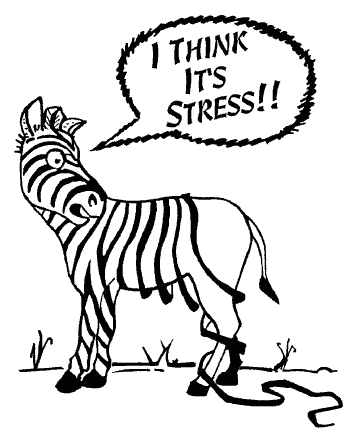
He continued,
'And that's the way it is with stress
management.
If we carry our burdens all the time, sooner or later,
the burden will become increasingly heavy:
and we won't be able to carry on. '
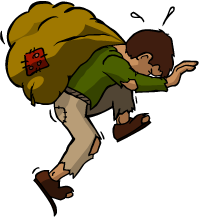
'As with the glass of water,
you have to put it down for a while and rest before holding it
again..

When we're refreshed, we can carry on with
the burden.
So, before you return home tonight, put the burden of work down:
don't carry it home.

You can pick it up tomorrow.
Whatever burdens you're carrying now,
let them down for a moment if you can.'

So, my friends, Put down anything that may
be a burden to you right now,don't pick it
up again until after you've rested a while.
Here
are some great ways of dealing with the
burdens of life:
* Just accept that, some days, you're the
pigeon: and, some days, you're the statue.
* Always keep your words soft and sweet -
just in case you have to eat them.
* Always wear stuff that will make you look
good if you die in the middle of it.
*Drive carefully. It's not only cars that
can be " recalled" by their maker.
* If you can't be kind, at least have the
decency to be vague.
* If you lend someone $20 and never see that
person again, It was probably worth it.
* It may be that your sole purpose in life
is simply to be kind to others.
* Never put both feet in your mouth at the
same time, because then you won't have a leg
to stand on.
* Nobody cares if you can't dance well. Just
get up and dance.
* Since it's the early worm that gets eaten
by the bird, sleep late.
* The second mouse gets the cheese.
* When everything's coming your way, you're
in the wrong lane.
* Birthdays are good for you. The more you
have, the longer you live.
* Some mistakes are too much fun to only make
once.
* We could learn a lot from crayons... Some
are sharp; some are pretty; and some are dull.
Some have weird names; and all are different
colours; but they all have to live in the same
box.
*A truly happy person is one who can enjoy
the scenery on a detour.

STRESS
MANAGEMENT
Stress
- put it down for a moment or Permanently
Some stress is inevitable and actually beneficial.
Stress helps people when they need to grow,
attain difficult goals and perform their best.
Some degree of stress enhances performance
even when individuals are not in immediate
danger. An athlete in a race may perform better
because of the stress of the big event. Stress
can increase performance, but only to a point.
When one's stress exceeds a certain limit,
additional stress will detract from performance.

You're running late, stuck in traffic, or
pushing a deadline. The day seems a bit more
out of control than usual and, bam, you've
driven past your freeway exit. Whether it's
something like this, or drawing a blank during
a big meeting, or getting into a fender-bender
on the way to a parent-teacher conference,
we all have had moments where life's little
pressures ganged up on us and we, somehow,
made the problem worse by forgetting something
or overlooking a significant detail.

Stress and Distortions
in Thinking
Stress can affects what people
think. When individuals are very stressed,
particularly if they become anxious or depressed,
their ability to think clearly and objectively
may be affected. People can easily feel less
capable or weaker than they truly are, and
think that their situation is much worse than
it really is. These kinds of subtle distortions
in thinking can be difficult to identify. When
one has a thought such as "I just cannot
do anything right" or "this is hopeless," he
or she may take it for granted that the thought
is true. This is not necessarily so because
people's thoughts can be completely untrue.
An exaggerated inaccurate thought such as "I'm
totally worthless," may be believed because
the feeling behind it is true; it reflects
a true feeling of despair or hopelessness.
It is too easy to accept distorted thinking
that goes along with an emotion and act as
if it is true. People sometimes deny that their
thinking is affected by their feelings. Believing
distorted or negative thoughts makes it more
difficult to work effectively to address one's
problems. If individuals really believe that
everything is hopeless and that they will never
do anything right, they are less capable of
critically assessing their situation in order
to improve it. If one is depressed and feels
hopeless enough, sometimes it seems easier
to throw up his/her hands in despair than to
deal with the real problems. The only way to
know if a thought is accurate is to look directly
at the thought as it occurs and examine it.
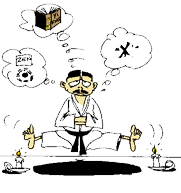
So
you may not think your stressed because,
your so stressed,,,sound Familiar?
Illness and
Stress
The significance of stress is that it shuts
down the immune system, which we know by now,
is the body's main system for fighting cancer.
Dr. Richard Shulze, Cure Zone and other sites,
declares that stress is always a factor in
the cancer patients that he treats. Dr. Linus
Pauling stated that stress uses up the bodies
vitamin C supply, which is needed for the immune
system to operate.
| When we are "nice" at the
expense of our health, we set ourselves
up to develop disease. Civilization has
it's price. We cannot afford to allow
situations to continually gnaw at our
insides in silence. "Every doctor
is familiar with the ""cancer
personality"" .... "The
nicest person in the world" say
his friends and relatives, "This
should not have happened to him" (Dr.
Kennedy). |
Remember, it is the immune system that fights
cancer and stress is devastating to our immune
system. This may be the most difficult area
of managing our lives in order to get well.
We can be loyal to our relationships at the
expense of our health. I have seen it over
and over again. Folks just can't convince themselves
that certain drastic changes may be in order
for them to manage their recovery well.
Evidence
There
is clear evidence that stress will slow
wound healing in healthy students.
The study by Phillip Marucha, in 1998 revealed
that examination stress in dental students
delayed wound healing times by 40% compared
to healing during the summer vacation.
This study also demonstrated a reduction
in levels of Interleukin-1 (IL-1) of 2/3
at the same time compared to unstressed
levels.
Interleukin-1 is an important cytokine that
plays several major roles in wound healing,
including mediation of the keratinocyte response
and wound contraction.
| Research has indicated that subjects
with a high level of perceived stress
to certain life events experienced a
greatly decreased level of immune response
- they had only a third of the level
of "natural killer cell activity" of
those who experienced the same life events
but perceived them as less stressful,
for example, they had steep reductions
in salivary immunoglobulin A (IgA). IgA
speeds healing, reduces the danger of
infection, and controls heart rate; reduced
Iga is linked with lowered resistance
to disease. |

A second study
by Ronald Glaser, using healthy women volunteers.
The volunteers were assessed for stress
using questionnaires prior to receiving
minor skin damage. Test conducted at 5
hrs & 24 hrs post injury revealed reductions
in levels 2 cytokines, IL-1 & IL-8
at the wound sites and an increase in levels
of cortisol in the saliva in women with
higher stress scores.
Cortisol suppresses the immune response and
is important in curtailing wound healing either
by reducing the population of neutrophils at
the wound site or by controlling the concentration
of cytokines.
The investigators found it worth noting that
none of the patients in the trial were experiencing
abnormal levels of stress, certainly less than
would be expected in patients anticipating
surgery.
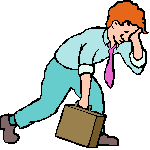
COLUMBUS, Ohio
-- A new study of dental students found
that stress can lengthen
the time wounds take to heal by as much
as 40 percent and reduce by two-thirds
the production of one cytokine -- interleukin-1
-- that is integral for the healing process.
The study, published in the current issue
of the journal Psychosomatic Medicine, is the
latest advance in nearly two decades of research
here into the effects even common stress has
on the human immune system.
The study also showed that this stress-induced
slow-down of the healing process seems to occur
in the first few days after injury. Researchers
believe this suggests that additional supportive
therapies applied soon after injuries might
counteract the slowing effects caused by stress.
Stress
Affects Individuals
The long-term effects of stress on one's health are quite
significant. The American Academy of Family Physicians has
said that two-thirds of office visits to family doctors are
prompted by stress-related symptoms. Stress is more than
just a nuisance or something that occasionally makes people
feel nervous or anxious.
Chronic, ongoing stress, even
when it is not so dramatic, can affect
one's health in very significant
ways. One common example of this
is the effect of a very stressful
job. Several large studies have demonstrated
that a stressful job more than doubles
one's risk of a heart attack. A stressful
job might lead to cigarette smoking,
obesity and lack of exercise, all
of which increase one's risk for
a heart attack. It is also the stress
itself that directly leads to an
increased risk. Stress has been associated
with the risk of many other diseases,
ranging from the common cold to chronic
pain to some types of cancer.
|
Stress slows
the ability of the body to repair wounds by
changing the response of the immune system
to injury, scientists have found.
US researchers set out to test the chemicals produced when 36 female
volunteers were given minor blisters.
Doctors had also noticed that patients helped to relax before an
operation recovered more quickly, often being kept in hospital
one or two fewer days.
http://news.bbc.co.uk/2/hi/health/711896.stm

Now
is the Time to Knock out your stress
Stress Warning Signs and Symptoms
Cognitive Symptoms
 Memory
problems
 Inability to concentrate
 Poor judgment
 Seeing only the negative
 Anxious or racing thoughts
 Constant worrying
|
Emotional Symptoms
 Moodiness
 Irritability or short temper
 Agitation, inability to relax
 Feeling overwhelmed
 Sense of loneliness and isolation
 Depression or general unhappiness |
Physical Symptoms
 Aches and pains
 Diarrhea or constipation
 Nausea, dizziness
 Chest pain, rapid heartbeat
 Loss of sex drive
 Frequent colds
|
Behavioral
Symptoms
 Eating more or less
 Sleeping too much or too little
 Isolating yourself from others
 Procrastinating or neglecting responsibilities
 Using alcohol, cigarettes, or drugs to
relax
 Nervous habits (e.g. nail biting, pacing) |

First
by Becoming Aware of Stress in Your Life
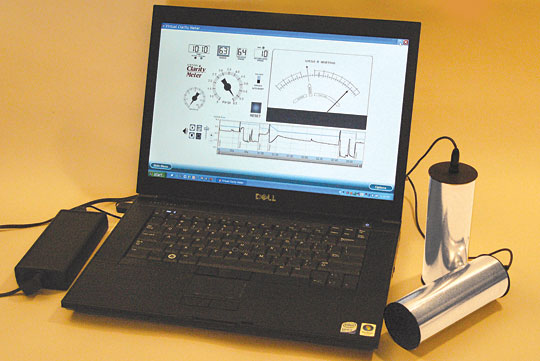
Measure the causes of your
Stress
Very often a primary cause of many health
problems relates to stress. Dr. Hans Selye,
a Hungarian doctor, documented the many negative
effects of stress on the human body. Excess
stress is often the pathway to disease and
can come from many sources such as toxicity,
trauma, allergies, harmful habits, mental states,
pathogens, etc.

As stress continues disease often progresses.
Therefore it is of outmost importance to identify
and stop stresses early to avoid diseases.
Remember the saying, "An ounce of prevention
is worth ..."
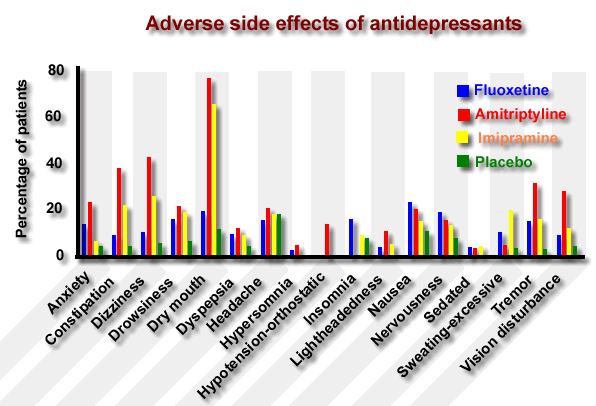
CES
A Unique Non-drug Therapy
CES is
a simple treatment employing mild battery-powered
electronic stimulation through clip-on electrodes
that attach to the earlobes or by pre-gelled
electrodes placed behind the ears. Current
flow is limited so that the most a user will
experience during the process is a brief tingling
sensation. Its most immediate impact is reduction
of anxiety. For most people, anxiety reduction
is experienced in the course of treatment,
but it also may be first seen hours, or as
late as several days after. After a CES session
you are left feeling both alert and relaxed
. Psychologists call this an "alpha state".
The effect differs from pharmaceutical treatments
in that people report feeling that their bodies
are lighter and more relaxed and their mind
more alert and clear. The results are cumulative
and lasting.
"There’s no escaping
it: stress is a part of our lives.
How we
handle that
stress can have an impact on our health.
Every day, we hear more and more about
the harm it may cause our minds and bodies,-
from heart disease to anxiety attacks.
Now researchers are trying to determine
if stress is also a factor in who will
develop cancer."
Hundreds of studies have measured how
stress impacts our immune systems and
fights disease. At Ohio State University,
researcher Dr. Ron Glaser, Ph.D., found
that students under pressure had slower-healing
wounds and took longer to produce immune
system cells that kill invading organisms.
Renowned researcher Dr. Dean Ornish,
M.D., who has spent 20 years examining
the effects of stress on the body, found
that stress-reduction techniques could
actually help reverse heart disease.
And Dr. Barry Spiegel, M.D., a leader
in the field of psychosomatic medicine,
found that metastatic breast cancer patients
lived longer when they participated in
support groups.
Other studies have gone as far as to
show those women who experienced traumatic
life events or losses in previous years
had significantly higher rates of breast
cancer.
Source |
CES has
major implications in a number of areas. In
the war on drugs, it is a formidable new weapon
in the treatment of the symptoms accompanying
detoxification and withdrawal. For those suffering
from depression and anxiety, it means relief
with none of the unpleasant side effects of
prescription drugs. For those seeking nothing
more than a good night's sleep, it is an alternative
to habit-forming tranquilizers. For a public
increasingly concerned with the effects of
stress on physical health and emotional well
being, it provides a way of addressing that
stress in a safe and effective manner. CES---a
treatment modality whose time has come.
CES has
a proven track record as far as safety is concerned.
There are no known negative side effects associated
with its use. It also has a substantial body
of research to support its claims. But because
of the pharmaceutical bias in Western medicine,
its deployment has been restricted and its
use limited. It has also been difficult for
people to find information on the topic. It
has been challenging to define easy to understand
parameters across traditional boundaries. This
website seeks to be the definitive site for
dissemination of information on CES and by
doing so, nurture an expanded dialogue on health
and wellness.
Charles McCusker, Ph.D.
Psychologist, Salt Lake City, UT
CES
Controls:
stress and stress related
disorders
anxiety
depression
insomnia
substance abuse
|
Helps:
Supercharge the brain
Attain a state of relaxed awareness
Optimize cognitive functioning
Achieve higher levels of mental performance
Enhance memory capacity
Facilitate recall
Increase IQ
|
| "Every day, our bodies are exposed
to cancer-causing agents in the air,
food
and water we’re exposed to. Typically,
our immune system recognizes those abnormal
cells and kills them before they produce
a tumor. There are three important things
that can happen to prevent cancer from
developing — the immune system can
prevent the agents from invading in the
first place, DNA can repair the abnormal
cells or killer T-cells can kill off cancer
cells.
Research has shown that stress can
lower the body’s ability to do
each of those things, according to
Dr. Lorenzo
Cohen, Ph.D., assistant professor of
behavioral sciences at the University
of Texas, M.D. Anderson Cancer Center."
|
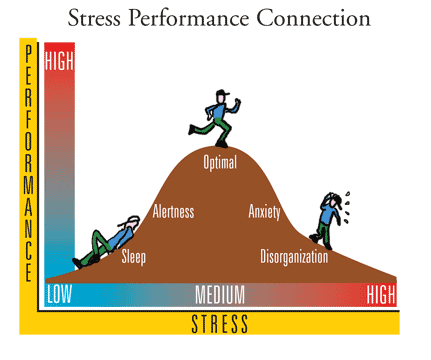
Stress
Management Techniques
or "How
to Rest Awhile"
BT
Plus
Its
An Alpha theta Stim and a BT11
all in one
5 Built in frequencies
 0.5
Hz 0.5
Hz
 1.5
Hz 1.5
Hz
 5.0
Hz 5.0
Hz
 7.83
Hz 7.83
Hz
 100.00
Hz 100.00
Hz
 Plus
the Full BT6-BT11 Beck Protocol Plus
the Full BT6-BT11 Beck Protocol
 1000.00
Hz + 111.00 Hz 1000.00
Hz + 111.00 Hz |
Fully Rechargable
Batteries
Timer
Intensity Control
Very portable
High Quality Earclips |
 |
|
|
|

